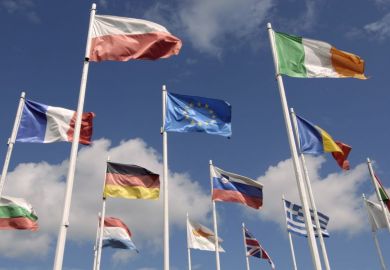The European Union’s next research framework programme is set to begin on 1 January as planned after Brussels policymakers finally struck a deal on its budget, including additional funding for the European Research Council.
Horizon Europe, which is set to run from 2021 to 2027, will have a budget of €95.5 billion (£87.6 billion). The deal struck between the European Parliament and the European Council on 11 December includes an extra €1 billion for the prestigious ERC, following widespread criticism of the fund’s initial allocation.
However, at €84.9 billion in 2018 prices, the budget remains well short of the €100 billion figure that was initially proposed by the European Commission. MEPs had topped up the budget with an extra €4 billion last month.
The political agreement is now subject to formal approval by the parliament and council. The commission, which runs Horizon Europe, said that it had been preparing the scheme’s implementation “in order to start the programme as soon as possible in 2021.
Christian Ehler, an MEP who was one of the parliament’s chief negotiators, said Horizon Europe should be able to start on 1 January.
“Finally, we have achieved an ambitious and balanced budget which strongly supports fundamental research as well as thematic research,” he said.
Kurt Deketelaere, secretary general of the League of European Research Universities, said he was “relieved” that a deal had been struck. However, he said, the budgets for Horizon Europe and the Erasmus+ mobility programme remained a “disappointment”, and he accused the council, which represents national leaders, of “political cynicism”.
“Even in times like these, heads of states and governments are so reluctant to fund research, innovation and education in a proper way,” said Professor Deketelaere, who added that the ERC top-up was “modest” and “a small consolation, disregarding the impressive track record that ERC funding can present”.
As well as the ERC, Horizon Europe will support the Marie Skłodowska-Curie fellowships and exchanges and a new European Innovation Council, which will have a budget of more than €10 billion to support commercial innovation.
However, it remains uncertain whether the UK will participate in the programme as an associate member. The UK’s participation is seen as hinging on the fate of wider negotiations on a post-Brexit trade deal, which looks increasingly unlikely to be clinched.
Register to continue
Why register?
- Registration is free and only takes a moment
- Once registered, you can read 3 articles a month
- Sign up for our newsletter
Subscribe
Or subscribe for unlimited access to:
- Unlimited access to news, views, insights & reviews
- Digital editions
- Digital access to THE’s university and college rankings analysis
Already registered or a current subscriber?







